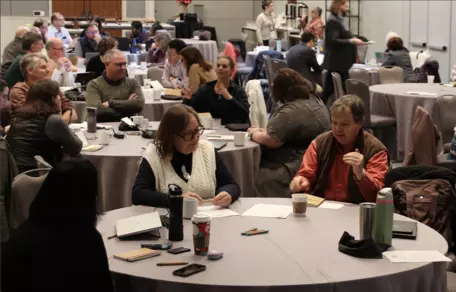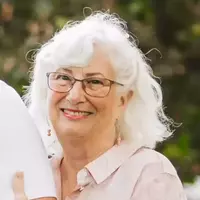About the Summit
The Summit will offer attendees the opportunity to connect with other Innovation in Two-Year College STEM Education (ITYC) awardees and contribute their expertise in engaging, interactive sessions. Participants can anticipate ample opportunities for community building and network development. Furthermore, attendee feedback will actively shape the Summit to ensure a productive and valuable experience for everyone involved.
Goals of the Summit:
- Learn about the range of ITYC projects
- Increase awareness of NSF program opportunities for TYCs
- Discuss challenges and opportunities in leading projects at TYCs
- Gain insights for developing future NSF proposals
- Build connections across ITYC awardees, prospective PIs, and NSF
Broader Impacts
Beyond the immediate sessions, the Summit aims to create lasting impact by strengthening participants' understanding of effective strategies in TYC STEM education and fostering a collaborative network among current and prospective ITYC leaders. By sharing knowledge and building community, the Summit's influence will extend to campuses nationwide, ultimately enhancing the STEM learning ecosystem.
Summit Conveners
Eric Baer, Division Chair of Pure and Applied Sciences & Geology Instructor at Highline College, brings direct experience in leading and securing NSF-funded projects specifically designed to support 2-year college faculty. At Highline College, a majority-minority two-year college, he has successfully directed projects focused on improving STEM education, including "SAGE 2YC: Faculty as Change Agents" and initiatives aimed at strengthening quantitative skills in Earth Science students. His expertise in fostering collaborations and securing funding, demonstrated through his work on the Washington State Earth Sciences Summit on Undergraduate Transfer and numerous other NSF-funded projects, makes him a valuable resource for participants seeking to enhance their project development and grant writing skills.
Heather Macdonald, Chancellor Professor of Geology Emerita at William & Mary, has a long and distinguished history of leading national projects focused on supporting 2-year college geoscience faculty. As the lead PI for "SAGE 2YC: Faculty as Change Agents," she demonstrated her commitment to empowering faculty through professional development, which included leadership development. Her work extends to fostering collaborations between 2-year colleges and disciplinary societies through multiple NSF-funded workshops. Her deep understanding of the 2-year college landscape and her expertise in developing successful national initiatives will be invaluable for participants seeking to expand their impact and build effective partnerships.
Ellen Iverson, Director of the Science Education Resource Center (SERC) at Carleton College, offers extensive experience in evaluating and supporting STEM education initiatives at the national level. With over twenty years of experience in education research and program evaluation, she has worked with numerous NSF-funded projects, including serving as the external evaluator for the EPIIC awards and participating as a panelist for the NSF Coastlines and Peoples PI meeting. She also directed the "Fostering Two-Year College Collaborations with Disciplinary Societies" workshop (DUE-2311493). Her expertise in assessing program effectiveness and fostering collaborations will be highly beneficial for participants looking to strengthen their project design and evaluation strategies.
Summit Consultant
Sharon Zuber brings extensive experience in supporting faculty writing and publication, particularly within community college contexts. As the former Director of the Writing Resources Center at William & Mary, she has directly contributed to the success of authors in STEM and interdisciplinary fields. Notably, she edited key chapters in two New Directions for Community College publications focused on faculty collaboration and STEM education reform. Sharon also co-designed and led the SAGE 2YC Writing Workshop, providing practical guidance for authors. Her expertise in facilitating clear and impactful communication will be valuable for workshop participants looking to enhance their own writing and dissemination efforts.





